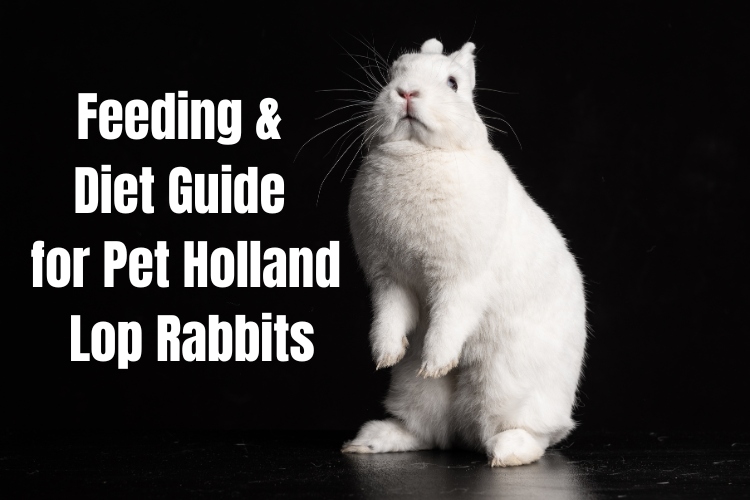Holland Lop rabbits are beloved for their friendly temperament and adorable appearance, making them popular pets among rabbit enthusiasts. To ensure these small, floppy-eared companions thrive, it is crucial to understand their unique dietary requirements.
A balanced diet not only supports their health and wellbeing but also enhances their quality of life. In this guide, we will provide you the comprehensive insights into the optimal feeding and diet regimen tailored specifically for pet Holland Lop rabbits.
Key Takeaways
- A high-fibre diet is essential for dental and digestive health, with hay or fresh grass comprising at least 85% of a Holland Lop’s diet.
- Adult Holland Lop rabbits require a daily intake of 60-70g of timothy-based pellets, alongside fresh vegetables and unlimited access to quality hay and clean water.
- Selective single component extruded nuggets are recommended to prevent selective feeding and obesity due to their balanced nutrition and low-calorie content.
- Creating a comfortable and stress-free habitat is vital for the wellbeing of Holland Lop rabbits, with appropriate bedding and possibly blankets over cages for added security.
- Regular veterinary check-ups, awareness of dental health, and understanding the risks of uterine cancer are key to preventive care and long-term wellness.
Understanding Your Holland Lop Rabbit’s Nutritional Needs
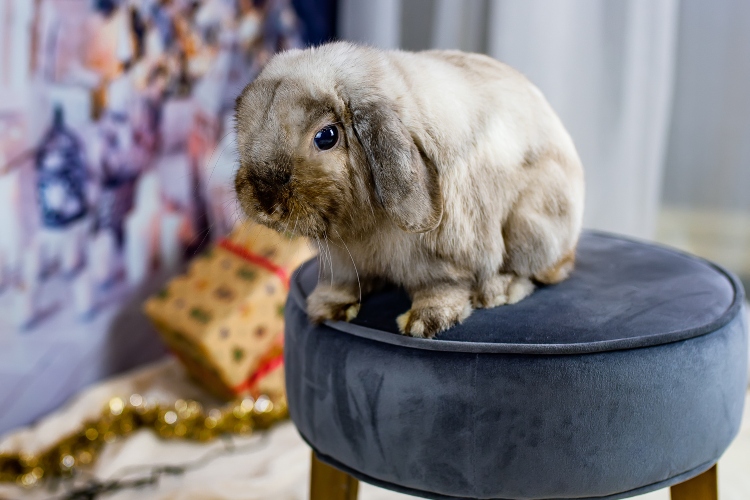
The Importance of High Fibre in the Diet
A high-fibre diet is crucial for the health and wellbeing of your Holland Lop rabbit. Hay should constitute the bulk of your rabbit’s diet, providing not only essential fibre but also aiding in dental health by wearing down their teeth. It’s recommended that hay or fresh grass make up at least 85% of their daily intake.
In addition to hay, a small quantity of pellets or fresh foods can be included in their diet. However, these should be limited as they do not contribute significantly to tooth wear. Here’s a simple guideline to follow:
- Unlimited hay or fresh grass
- Limited pellets
- Occasional fresh foods
Regular vet check-ups are also important to monitor your rabbit’s dental health, especially if there is a history of dental disease. A diet rich in fibre not only supports healthy digestion but also helps maintain a healthy weight for your rabbit, preventing obesity and associated health issues.
Balancing Calcium and Phosphorus
Maintaining the correct balance of calcium and phosphorus in your Holland Lop rabbit’s diet is crucial for bone health and overall wellbeing. Rabbits require a specific calcium to phosphorus ratio to prevent health issues such as urinary stones and renal problems.
The ideal ratio is generally considered to be between 1.5:1 and 2:1, calcium to phosphorus.
When selecting pellets for your bunny, it’s important to check the guaranteed analysis for the calcium and phosphorus content. Here’s a quick reference table for an adult Holland Lop rabbit’s dietary needs:
| Nutrient | Minimum % | Maximum % |
|---|---|---|
| Calcium | 0.5 | 1.0 |
| Phosphorus | 0.4 | 0.8 |
Ensure that the pellets you choose fall within these ranges to support a healthy diet. Additionally, the calcium and phosphorus content in fresh vegetables and hay should also be considered to maintain the balance.
The Role of Prebiotics for Digestive Health
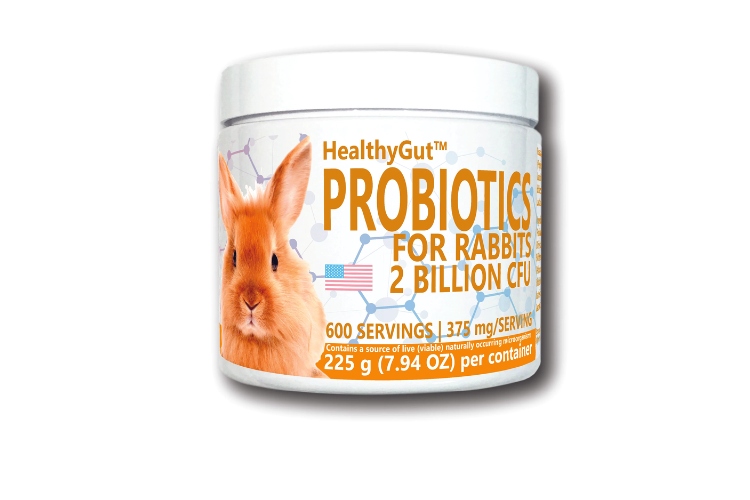
Prebiotics are a critical component in the diet of Holland Lop rabbits, serving as fuel for the beneficial bacteria in the gut. These non-digestible fibers help maintain a healthy balance of microflora, which is essential for optimal digestive health.
A well-balanced gut microbiome aids in efficient nutrient absorption and supports the immune system. Products like HealthyGut™ Probiotics for Rabbits by Equa Holistics are formulated to holistically promote normal digestion and aid in the relief from digestive upset.
Incorporating prebiotics into your rabbit’s diet can also help defend against the effects of stress and antibiotic use. It’s important to choose feeds that are fortified with prebiotics and comply with FEDIAF rabbit nutrition guidelines.
Here are some key benefits of including prebiotics in your Holland Lop’s diet:
- Supports healthy gut motility
- Aids in maintaining a healthy weight
- Fortified with essential vitamins and minerals
- Highly palatable, ensuring your rabbit will enjoy their meals
Remember, a diet rich in prebiotics, along with a variety of other nutrients, will contribute to the overall wellbeing of your pet rabbit.
Vitamins and Minerals for Overall Wellbeing
Ensuring your Holland Lop rabbit receives the right balance of vitamins and minerals is crucial for maintaining their overall health. Vitamins A, D, E, and C are essential for various bodily functions, including vision, bone health, antioxidant activity, and immune system support. A deficiency or excess of these can lead to health issues.
Rabbits require a diet fortified with a range of vitamins and minerals. For example, calcium and phosphorus must be in the correct ratio to prevent urinary and skeletal problems. The table below outlines some key nutrients and their benefits:
| Nutrient | Benefit |
|---|---|
| Vitamin A | Vision and immune health |
| Vitamin D | Bone and dental health |
| Vitamin E | Antioxidant properties |
| Vitamin C | Immune system support |
| Calcium | Bone structure and teeth |
| Phosphorus | Energy metabolism |
In addition to these, prebiotics like MOS are included in quality feeds to support gut health, and Omega 3 & 6 from sources like flaxseed promote a healthy skin and glossy coat. Always choose feeds that adhere to FEDIAF guidelines and are recommended by veterinarians for the best nutritional outcomes.
Daily Feeding Guide for Adult Holland Lop Rabbits
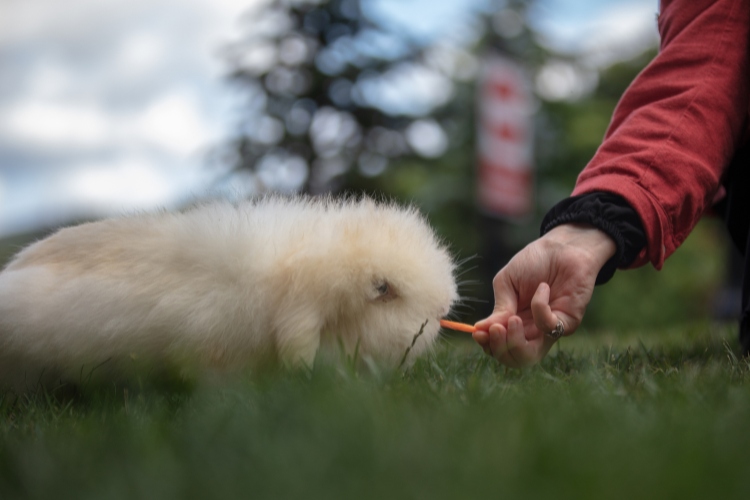
Recommended Daily Amounts of Pellets
When it comes to feeding your adult Holland Lop rabbit, understanding the recommended daily amounts of pellets is crucial. Pellets should form a small but essential part of your rabbit’s diet, providing concentrated nutrients not always available in hay or fresh vegetables.
A good rabbit pellet will have a crude protein content of 13-17%, with long-haired breeds, large breeds, and nursing mothers requiring 17-20%. The crude fat should be kept between 1-5% to maintain a healthy weight.
It’s important to choose pellets that are high in fiber, at least 25%, to promote dental and digestive health. The calcium to phosphorus ratio should also be balanced, ideally around 0.6% calcium to 0.4% phosphorus.
Look for pellets that include prebiotics like MOS to support gut motility and overall digestive wellbeing. Avoid pellets with added sugars and those high in calories to help prevent obesity in your Holland Lop.
Here is a simple guideline for pellet portion sizes based on weight:
| Rabbit Weight | Daily Pellet Amount |
|---|---|
| Under 4 lbs | 1/8 cup |
| 4-6 lbs | 1/4 cup |
| 6-8 lbs | 1/3 cup |
| Over 8 lbs | 1/2 cup |
Remember, these are general guidelines and your rabbit’s needs may vary depending on activity level, health status, and other factors. Always monitor your rabbit’s weight and health, and adjust the diet accordingly.
Incorporating Fresh Vegetables
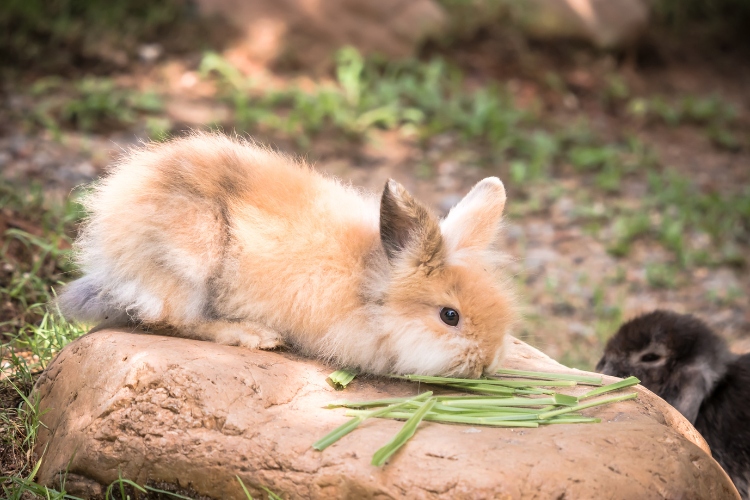
Fresh vegetables are a vital component of a Holland Lop rabbit’s diet, providing essential nutrients and variety. Rabbits love fresh vegetables, especially leafy greens, which should be a daily inclusion. A balanced variety of vegetables can help prevent selective feeding and ensure your rabbit receives a range of nutrients.
When introducing vegetables to your rabbit’s diet, start with small amounts and gradually increase to avoid digestive upset. Here’s a simple guideline to follow:
- Leafy greens: 1 cup per 2 lbs of body weight per day
- Non-leafy vegetables: 1 tablespoon per 2 lbs of body weight per day
Remember, the freshness of the vegetables is crucial, as it impacts both the nutritional value and the appeal to your rabbit. Always wash vegetables thoroughly to remove any pesticides or contaminants before serving.
The Necessity of Quality Hay
Hay is not just a filler in the diet of a Holland Lop rabbit; it is an essential component that provides the necessary fiber for proper digestion. Hay helps with healthy rabbit digestion and should be available to your rabbit at all times.
Rabbits have a particularly long gastrointestinal tract, which has evolved to process high-fiber foods efficiently. When selecting hay, look for freshness and high nutritional quality.
Customer reviews often highlight the freshness and flavor of popular brands like Oxbow and Kaytee. It’s important to choose hay that is dust-free and stored properly to prevent respiratory issues.
Here’s a quick guide to the types of hay and their benefits:
- Timothy Hay: Ideal for adult rabbits, low in calcium.
- Alfalfa Hay: Recommended for young, pregnant, or nursing rabbits due to higher protein and calcium.
- Meadow Hay: A mix of grasses, providing variety and entertainment.
Always monitor your rabbit’s intake and ensure they are consuming enough hay to maintain a healthy weight and prevent obesity.
Monitoring Weight and Health
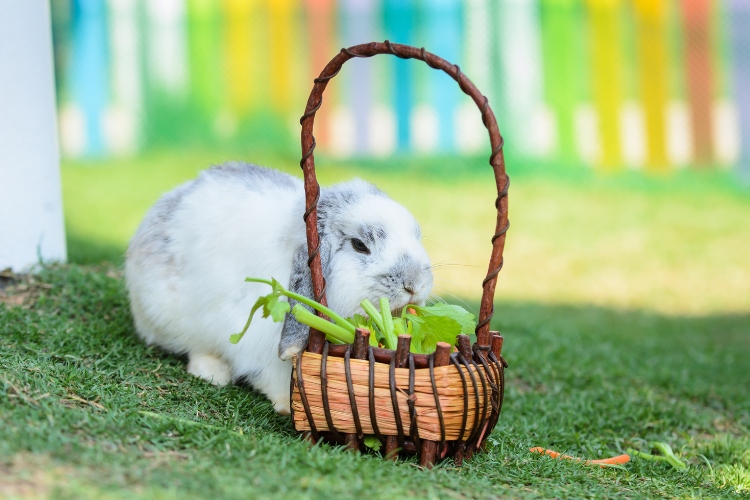
Maintaining a consistent weight is crucial for the health of your Holland Lop rabbit. Monthly weight checks are recommended to ensure that your pet’s weight remains stable.
A sudden weight loss can be an early indicator of illness, and should prompt a visit to the vet. It’s also important to regularly inspect their bottom and tail area for signs of fly strike, particularly in warmer weather.
To assess your rabbit’s body condition, you can use the Body Condition Score (BCS), which is a scale from one to six. An ideal score is 3, indicating a healthy weight. Here’s a quick reference:
- 1: Emaciated
- 2: Lean
- 3: Ideal
- 5: Fat
- 6: Obese
Use this score as a guideline to keep your bunny within the healthy range, which will contribute to a longer and happier life. For detailed information on how to maintain your rabbit in the ideal category, consult resources on the Bunny Body Condition Score Chart.
Choosing the Right Feed: Selective Rabbit Food
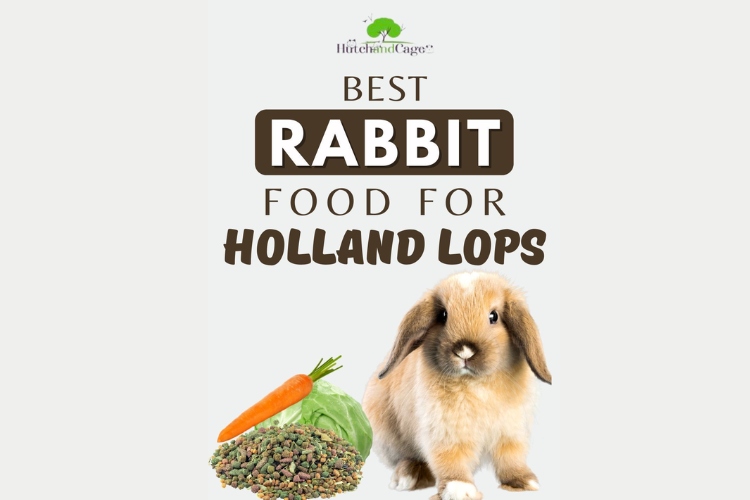
Benefits of Single Component Extruded Nuggets
Single component extruded nuggets are a revolutionary approach to feeding your Holland Lop rabbit. These nuggets are designed to prevent selective feeding, a common issue where rabbits pick out their favorite bits from a mix, leading to an unbalanced diet.
With a uniform composition, each nugget contains all the essential nutrients your rabbit needs. The high fibre content in these nuggets is crucial for promoting dental and digestive health. A diet rich in fibre ensures proper tooth wear and supports the digestive system.
Additionally, the correctly balanced calcium to phosphorus ratio is vital for bone health, with a typical formulation containing 0.6% calcium and 0.4% phosphorus.
Here are some key benefits of single component extruded nuggets:
- Prevents selective feeding
- Rich in natural ingredients
- High in fibre (25%)
- No added sugars
- Low-calorie content to help prevent obesity
- Contains prebiotics for digestive wellbeing
- Fortified with vitamins and minerals for overall health
Avoiding Selective Feeding and Obesity
Selective feeding can lead to an imbalance in nutrition and, subsequently, obesity in Holland Lop rabbits. Supreme Science Selective is specifically designed to prevent this issue by providing a balanced diet in every bite.
Its single component extruded nuggets ensure that rabbits consume all the necessary nutrients without the option to pick and choose. To maintain a healthy weight, it is crucial to monitor your rabbit’s intake. The recommended daily amount for an average adult rabbit (2.5kg) is 60-70g of Selective Rabbit.
Alongside this, fresh vegetables and quality hay should be a staple in their diet. Remember, consistency is key in preventing weight gain and ensuring your rabbit’s well-being.
Here is a simple feeding guide to help you monitor your rabbit’s diet:
- 60-70g of Selective Rabbit per day for an average adult rabbit (2.5kg)
- Fresh vegetables
- Unlimited access to quality hay
- Clean drinking water
Always store the food in a cool, dry place, and keep an eye on your rabbit’s weight and health regularly.
Why Timothy-Based Pellets are Essential?
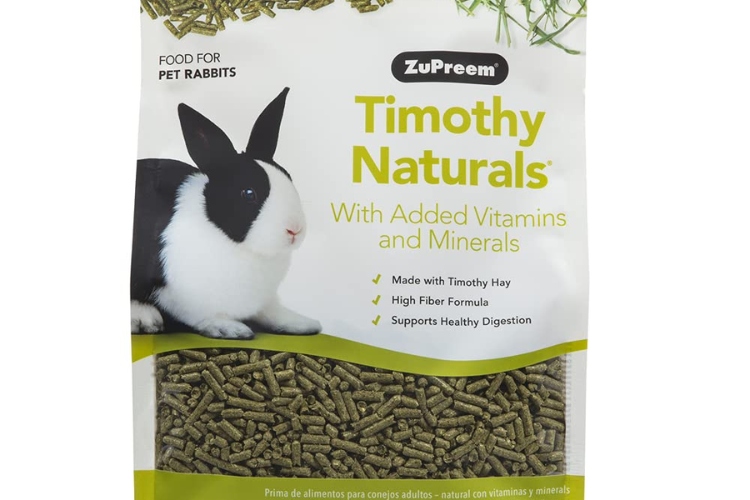
Timothy-based pellets are a cornerstone of a healthy diet for adult Holland Lop rabbits. Unlike alfalfa-based pellets, which are suitable for younger rabbits, timothy pellets provide the appropriate balance of nutrients without the excess calcium that can lead to health issues in adults.
Adult rabbits need timothy-based pellets to maintain optimal digestive health and prevent conditions such as GI blockages, which can be life-threatening. Owners have reported significant improvements in their rabbits’ health after switching to timothy-based pellets.
For example, a male mini rex rabbit that suffered from GI blockages on alfalfa pellets showed remarkable recovery when his diet was changed to a high-quality timothy pellet brand. This anecdotal evidence supports the importance of selecting the right feed for your pet.
Here are some key benefits of timothy-based pellets:
- Lower in calcium, reducing the risk of urinary issues
- High in fiber, promoting healthy digestion
- Balanced nutrition for maintaining ideal weight
- Less likely to cause selective feeding, ensuring a complete intake of nutrients
Customer Reviews and Testimonials
When selecting the right feed for your Holland Lop rabbit, customer reviews and testimonials can be incredibly insightful. Customer satisfaction is a strong indicator of a product’s quality, and many rabbit owners rely on feedback from others to make informed decisions.
For instance, the Sherwood Pet Health Adult Rabbit Food has received high praise for its ingredients, with customers noting their rabbits’ health and vitality.
The overall ratings for rabbit food products can vary, but they provide a snapshot of consumer sentiment. Here’s a brief overview of how one product fared:
| Rating | Percentage |
|---|---|
| 5 star | 89% |
| 4 star | 7% |
| 3 star | 2% |
| 2 star | 1% |
| 1 star | 1% |
It’s important to remember that while reviews can guide you, each rabbit is unique and may have different dietary needs. Always monitor your pet’s health and consult with a veterinarian if you have concerns.
Habitat and Comfort: Enhancing Your Rabbit’s Living Space
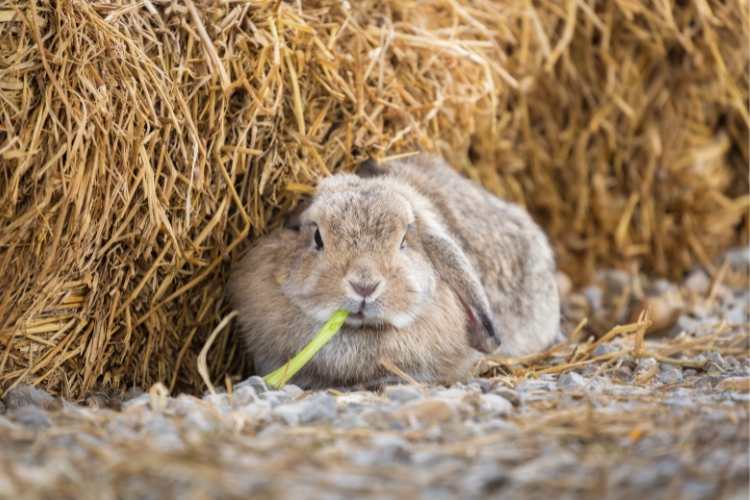
The Debate Over Blankets Over Cages
The question of whether to use blankets in a Holland Lop rabbit’s habitat is a topic of much discussion among rabbit owners. Blankets can provide a sense of security and comfort for rabbits, making their living space feel more inviting.
However, it’s crucial to choose the right type of blanket to avoid any risks to your pet’s health. While some owners advocate for the use of blankets, citing that rabbits enjoy the softness, others point out the potential dangers.
Rabbits are known to chew on almost anything, including fabric, which can lead to digestive issues or blockages if ingested. Therefore, it’s important to monitor your rabbit’s interaction with any blankets in their cage and to ensure that the blankets are free of holes and loose threads.
For those considering adding blankets to their rabbit’s cage, here’s a simple guide to follow:
- Select blankets that are durable and chew-resistant.
- Regularly inspect the blankets for signs of wear and tear.
- Remove any blankets that become frayed or damaged.
- Always provide plenty of hay for your rabbit to nest and burrow in, as it is a safer alternative.
Choosing Suitable Bedding
Selecting the right bedding for your Holland Lop rabbit is crucial for their comfort and health. Paper bedding is a top choice for indoor rabbit habitats, providing a clean and cozy layer when combined with dust-extracted hay. This setup not only ensures a snug resting area but also maintains a hygienic environment.
For additional warmth, especially during colder months, a layer of soft straw can be beneficial. It’s important to avoid wood shavings, as they are not suitable for rabbits due to potential health risks. Instead, consider using fleece blankets or towels that are easily washable, or opt for durable and easy-to-clean PVC mats.
Regular maintenance of your rabbit’s bedding is essential. Bedding should be changed at least once a week, or more often if it becomes soiled or emits odors. By keeping the bedding fresh, you provide a stress-free environment for your pet, contributing to their overall wellbeing.
Creating a Stress-Free Environment
Creating a stress-free environment for your Holland Lop rabbit is crucial for their overall well-being. A calm and serene habitat can significantly reduce anxiety and promote a happy, healthy life for your pet. To achieve this, consider the layout and accessories within your rabbit’s living space.
Noise levels should be kept to a minimum as rabbits are sensitive to loud sounds. Soft music or white noise can help mask disruptive noises from the household or outdoors.
Additionally, providing hiding spots where your rabbit can retreat to feel safe is essential. This can be as simple as a cardboard box or a commercially available rabbit hideout. Here are some tips to enhance your rabbit’s living space:
- Ensure the cage is spacious enough for exercise and play.
- Include chew toys to keep your rabbit entertained and to help maintain dental health.
- Regularly clean the habitat to prevent the buildup of harmful bacteria.
Remember, a stress-free environment is not only about the physical space but also about how you interact with your rabbit. Gentle handling and consistent routines can help your rabbit feel secure and content.
Health and Wellness: Preventive Care for Your Holland Lop
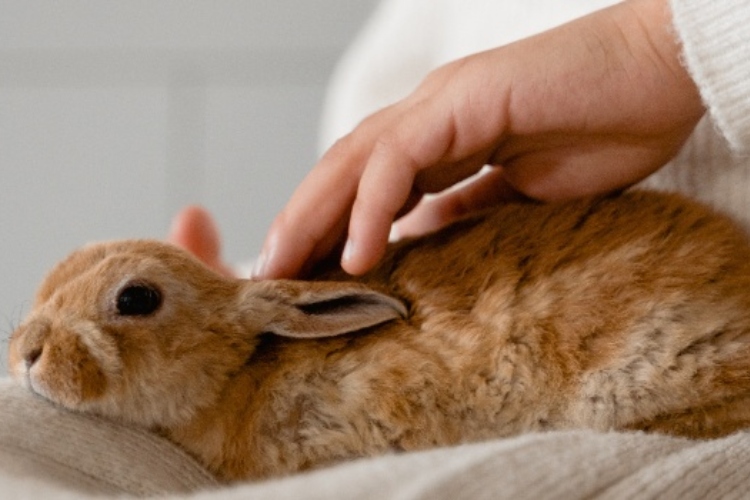
The Importance of Annual Vet Check-Ups
Regular veterinary check-ups are crucial for maintaining the health of your Holland Lop rabbit. Annual vet visits allow for early detection of potential health issues, which can be particularly beneficial for preventing and managing chronic conditions.
During these check-ups, vets can monitor your rabbit’s weight, dental health, and overall wellbeing. It’s essential to keep a record of your rabbit’s health history and any concerns you may have noticed. Here’s a simple list to help you prepare for a vet visit:
- Note any changes in behavior or appetite
- Keep track of your rabbit’s weight
- Record any signs of dental problems, such as difficulty eating
- Mention any lumps, bumps, or skin issues observed during grooming
By staying proactive with preventive care, you can ensure a longer, happier life for your pet. Remember, rabbits are adept at hiding illness, so regular check-ups are a key component of responsible pet ownership.
Recognizing Signs of Dental Problems
Holland Lop rabbits, like all rabbits, have teeth that grow continuously. If your rabbit’s teeth are not properly worn down through their diet, they can overgrow, leading to serious dental issues. Overgrown teeth can cause a range of problems, from difficulty eating to severe pain and discomfort.
It’s crucial to recognize the signs of dental problems early to ensure your pet’s health and comfort. Some common indicators of dental disease include weight loss, a wet chin due to dribbling, loss of appetite, and a dirty bottom indicating difficulty grooming.
Additionally, watery eyes and lumps in the jaw area can be signs of dental issues. These symptoms may be subtle, as rabbits are adept at hiding their discomfort.
To check for dental problems at home, gently feel your rabbit’s jaw for any abnormalities such as bumps or lumps that could indicate abscesses. However, a professional vet examination is essential for a thorough assessment. If you notice any of these signs, it’s important to book an appointment with your vet promptly:
- Weight loss
- Dribbling or wetness around the chin
- Loss of appetite
- Difficulty grooming
- Overgrown teeth
- Watery eyes
- Lumps in the jaw area
Preventing dental disease is key, and a proper diet is the cornerstone of dental health for your Holland Lop rabbit.
Understanding Uterine Cancer Risks
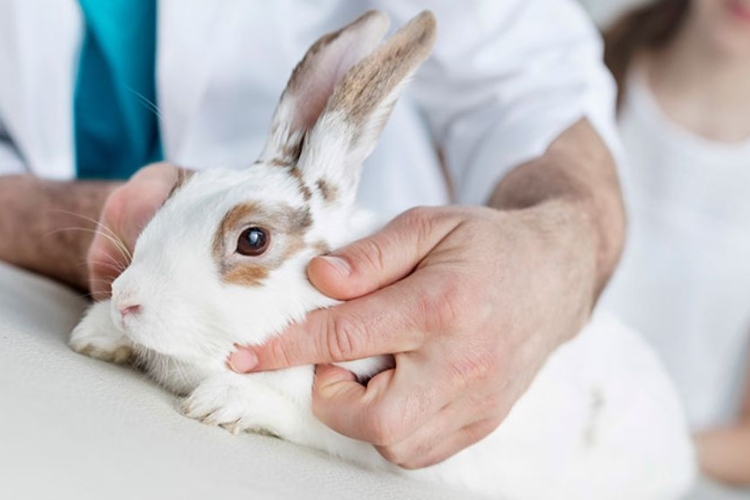
Unneutered female Holland Lop rabbits face a significant risk of developing uterine cancer, particularly as they age. By the age of three, studies indicate that up to 60% of unspayed females may develop tumors in their uterus.
Spaying your rabbit is the most effective preventative measure, virtually eliminating the risk of this disease. The symptoms of uterine cancer in rabbits can be subtle and may include behavioral changes such as increased aggression, the presence of blood in urine, unexplained weight loss, and abdominal swelling.
It’s crucial to monitor your rabbit for these signs and consult with a veterinarian if any are observed. Early detection and intervention are key to managing health outcomes.
If you suspect your rabbit may be affected by uterine cancer, immediate veterinary attention is necessary. Here’s a quick checklist of symptoms to watch for:
- Changes in behavior, like aggressiveness
- Blood in urine
- Weight loss
- Swelling in the abdomen
In the unfortunate event that the cancer has metastasized, your vet can discuss the available options to ensure the best possible care for your rabbit.
Conclusion
In conclusion, providing a balanced and nutritious diet is essential for the health and well-being of your Holland Lop rabbit. A diet rich in high-fiber hay, fresh vegetables, and a controlled portion of high-quality pellets will ensure your rabbit maintains optimal dental and digestive health.
Remember to avoid selective feeding by offering single component extruded nuggets and to monitor your rabbit’s weight and overall condition regularly. With the right diet and care, your Holland Lop can enjoy a happy and healthy life.
Always consult with your veterinarian for personalized advice, especially if your rabbit has specific health concerns.
Frequently Asked Questions
What should make up the majority of my Holland Lop rabbit’s diet?
Hay or fresh grass should constitute at least 85% of your rabbit’s diet to ensure proper dental wear and gut health.
How much and what type of pellets should I feed my adult Holland Lop rabbit?
An average adult rabbit weighing 2.5kg should receive 60-70g per day of timothy-based pellets, with no added sugars and a low-calorie content to help prevent obesity.
Can rabbits live on hay alone?
Rabbits could theoretically live on hay and water alone due to the vital long fibers for their digestion and dental health, but it’s recommended to also provide fresh leafy vegetables and a small amount of commercial feed.
Is it important for my rabbit to have annual vet check-ups?
Yes, annual vet check-ups are crucial for spotting dental problems early and monitoring for conditions like uterine cancer, especially if your rabbit has a history of dental disease.
What are the benefits of single component extruded nuggets for rabbits?
Single component extruded nuggets prevent selective feeding, ensuring that your rabbit gets a balanced diet with every bite, and helps in maintaining dental and digestive health.
How can I enhance my Holland Lop rabbit’s living space for better comfort?
Choose suitable bedding that is odor absorbent to minimize pet odors and create a stress-free environment. Some rabbits may enjoy having a blanket over their cage for added security.

